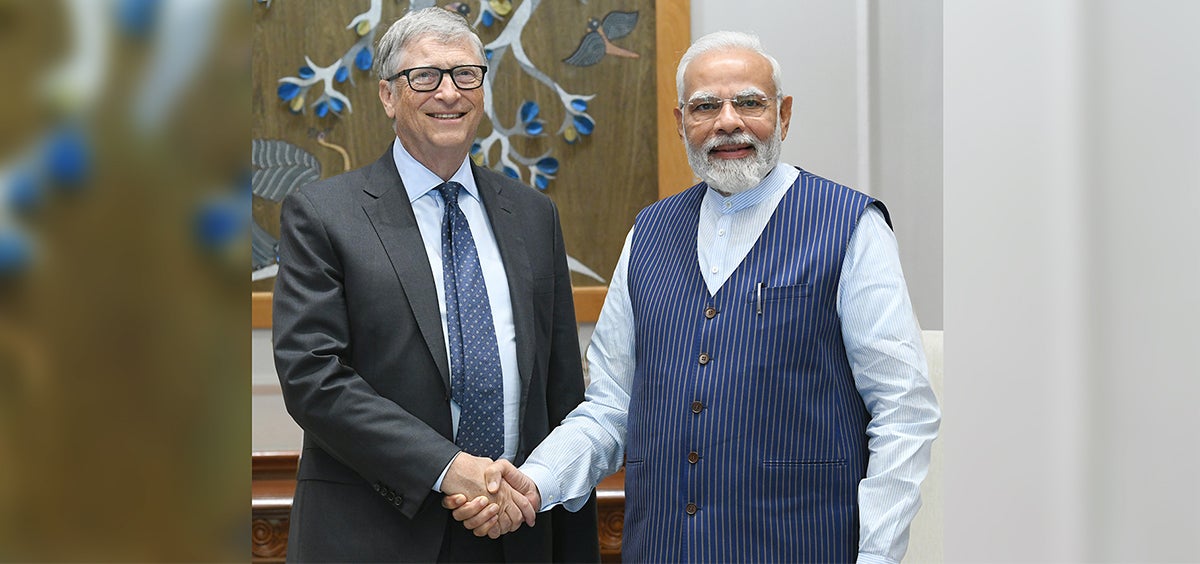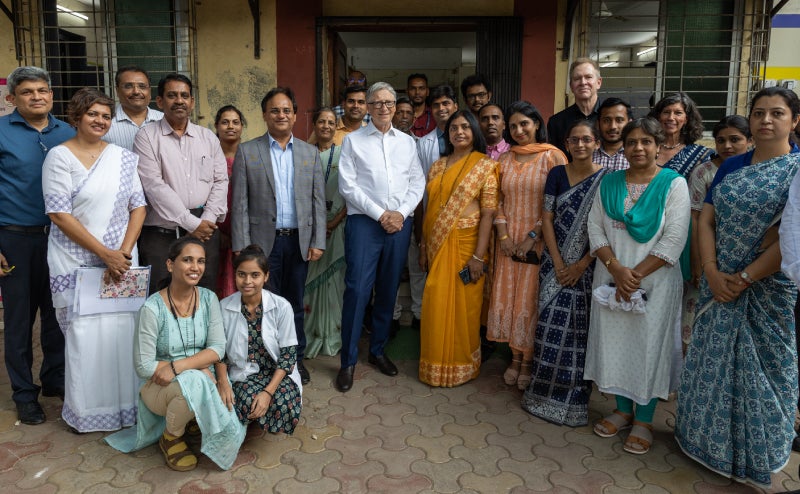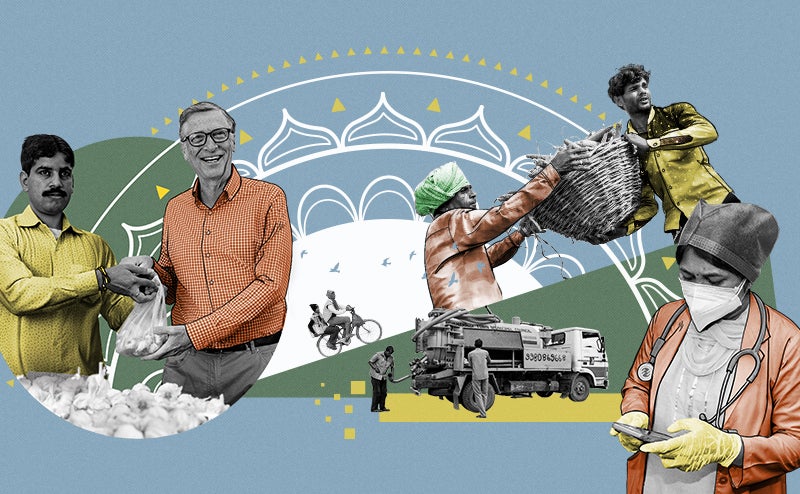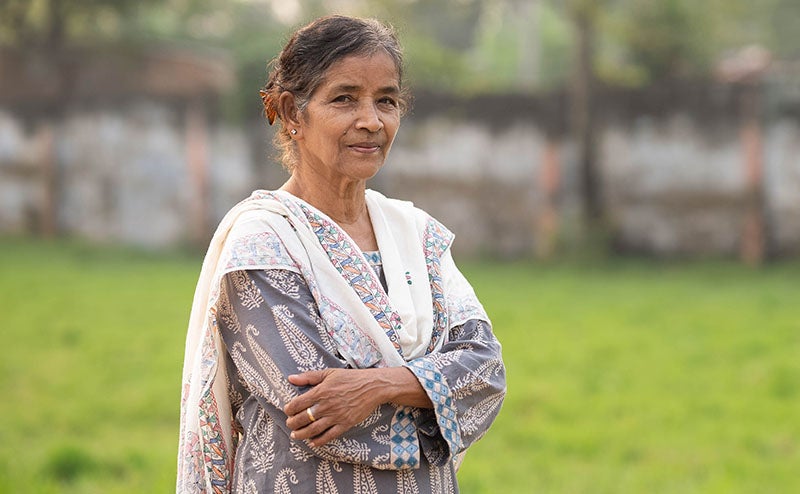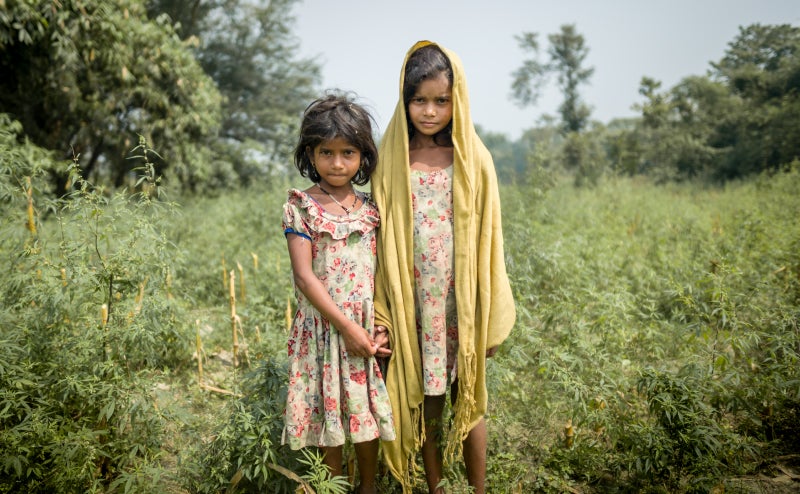In the second episode of our podcast, Rashida and I ask a big question that has never felt more urgent: is inequality inevitable?
I’ve been in India this week, learning about the innovative work going on here in health, climate change, and other crucial areas. At a time when the world has so many challenges, it’s inspiring to visit a dynamic and creative place like India.

I enjoyed discussing India's remarkable progress with Prime Minister Modi.
A highlight of my trip was Friday’s meeting with Prime Minister Narendra Modi. He was generous with his time, as we talked about how science and innovation can help reduce inequity in India and around the world.
Although I didn’t travel much over the past three years because of the pandemic, Prime Minister Modi and I have stayed in touch, especially about developing COVID-19 vaccines and investing in India’s health systems. India has an amazing ability to manufacture lots of safe, effective, and affordable vaccines, some of them supported by the Gates Foundation. Vaccines produced in India have saved millions of lives during the pandemic and prevented other diseases around the world.
In addition to producing new lifesaving tools, India also excels at delivering them—its public health system has delivered more than 2.2 billion doses of COVID vaccines. They created an open-source platform called Co-WIN, which allowed people to schedule billions of vaccine appointments and delivered digital certifications for those who were vaccinated. This platform is now being expanded to support India’s universal immunization program. Prime Minister Modi believes that Co-WIN is a model for the world, and I agree.
India was also able to transfer emergency digital payments to 300 million people, including 200 million women, during the pandemic. This was only possible because India has made financial inclusion a priority, investing in a digital ID system (called Aadhaar) and creating innovative platforms for digital banking. It’s a reminder that financial inclusion is a fantastic investment.
The country’s Gati Shakti program is a great example of how digital technology can help governments work better. It digitally connects 16 ministries, including rail and roads, so they can integrate their plans for infrastructure projects and accelerate the work of Indian scientists and engineers.
We also discussed India's G20 Presidency this year. It’s an excellent opportunity to highlight how innovations developed in India can benefit the world, and to help other countries adopt them. Supporting these efforts—especially spreading its digital ID and payments systems to other places—is a high priority for our foundation.
I commended the Prime Minister on India's efforts to eliminate deadly and debilitating diseases like tuberculosis, visceral leishmaniasis, and lymphatic filariasis. He told me about a fascinating movement taking shape in India: Communities are “adopting” TB patients to make sure they get the nutrition and care they need. India has used a similar approach with HIV, and it’s been shown to produce lasting results.
Education was another focus of our conversation. It was great to discuss India’s initiative to promote universal foundational literacy and numeracy across the country. Although the pandemic hit the country’s school system hard, as it did everywhere else, India is using digital tools to make learning more accessible through several different avenues, including TV.
Finally, the Prime Minister and I talked about climate change. We’ve been working together on climate for years—India is a key partner in Mission Innovation, the program launched in 2015 to accelerate work on clean energy technologies. I’m looking forward to getting together with the MI partners during the COP28 Summit this December to accelerate the development of new sources of affordable, reliable clean energy.
Earlier in the week, I had visited the India Council of Agricultural Research in Pusa, where I learned about efforts to help farmers adapt to a warmer climate, including by planting new varieties of wheat and chickpeas that can tolerate droughts. Scientists are also working to increase the shelf life of millet-based products. Millets are very nutritious—a super food, as Prime Minister Modi put it—and are also water-efficient and heat tolerant. I even got to taste millet khichdi, a type of porridge, at a “Godh Bharai” ceremony—similar to a baby shower—for two women hosted by the Ministry of Women and Child Development.


I was excited to learn about the weather-resistant crops being developed at the India Council of Agricultural Research in Pusa. They'll help farmers adapt to a changing climate.
My conversation with the Prime Minister left me more optimistic than ever about the progress that India is making in health, development, and climate. The country is showing what’s possible when we invest in innovation. I hope India will continue this progress and share its innovations with the world. I’m proud that the Gates Foundation will be a partner along the way.
